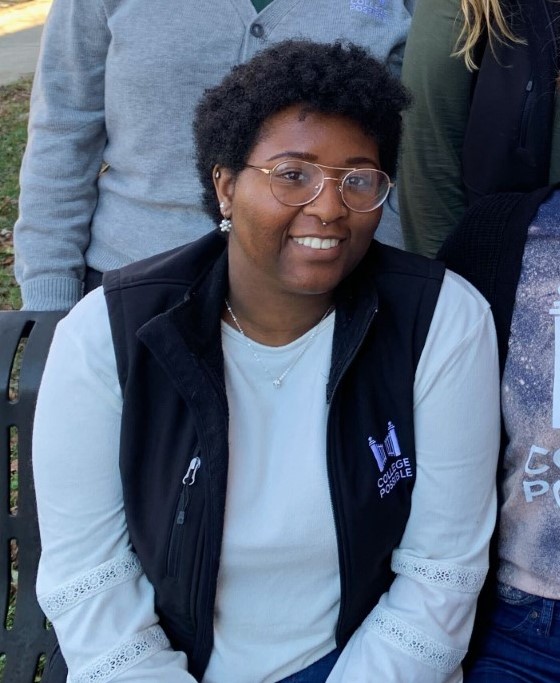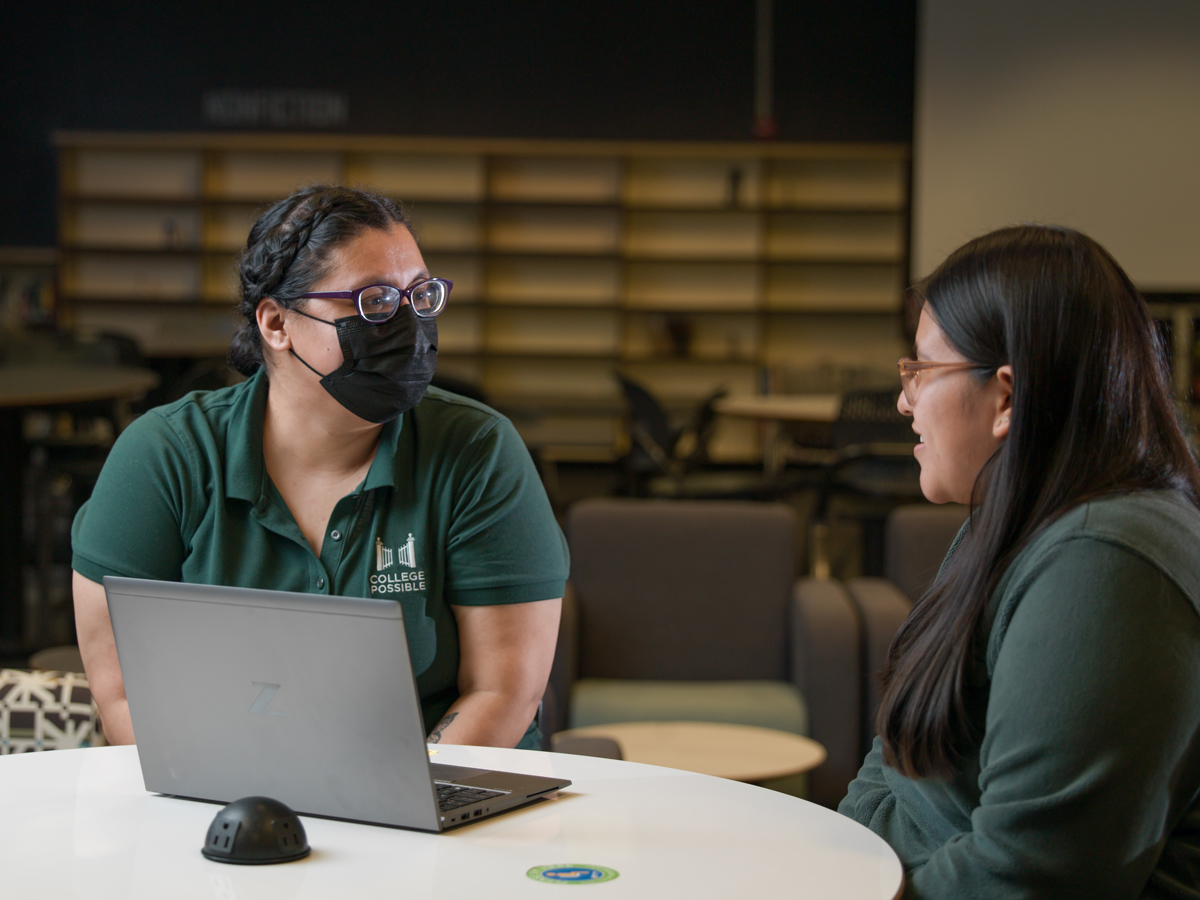As College Possible’ Catalyze team kicks off our 2022-23 program year, we just wrapped up our welcome weeks by welcoming nearly 40 coaches to serve at nine of our partner institutions of higher education across the United States. College Possible is looking at serving up to 24,000 students this year alone with 5,000 being served by a Catalyze coach.
College Possible’s hard working and dedicated AmeriCorps members show up every day to support the students they serve. This year we have three coaches who will be in their third year of service with AmeriCorps and College Possible. These coaches have supported their students through a global pandemic and helped with the transition back to in-person learning while keeping a positive attitude every step of the way. We were able to interview two of these coaches, Asia Pace serving at Austin Peay State University and Rachel Riojas at CSU, Stanislaus. Here, they share why they choose to return for their third year of service.
What initially inspired you to become a CP success coach and AmeriCorps member?
Asia: I became a coach because I want all my students to be aware of everything there is to do on campus. When they graduate, I want them to say that the reason they didn’t do something was because they didn’t want to, not because they didn’t know about it. It would have been nice to have someone there for me during school so now I can be that person for my students.
Rachel: I was a teen mom and a college drop-out who returned later to finish my degree. I struggled, but I also met a lot of great mentors at CSU, Stanislaus. I wanted to be that same support person I needed back then to someone else. I was inspired to become a beacon of light to other college students who come from similar backgrounds as myself. Being a coach allows me to pay it forward and make a difference in my community.
This is your third year serving with College Possible. Why did you choose to serve for a third year? And what has been your biggest accomplishment while in this role?
.jpg)
Rachel: I felt like I struck gold when I started serving with College Possible which made it an easy decision to serve for a third year. I have an amazing team of fellow coaches, a supportive supervisor, and a wealth of knowledgeable professionals at College Possible who ensure we have all the tools necessary to become successful in our position. My biggest accomplishment while being in this role has been the amount of growth I have experienced both professionally and personally.
Asia: I’d like to take the experience I gained over the past two years to really flesh out the College Possible program on my campus. We know what works and what doesn’t work so now we can take this knowledge and do even better. My biggest accomplishment was receiving an award for my leadership skills from the African American cultural center on my campus!
What is your favorite part/memory working with College Possible?
Asia: I really enjoy being able to talk to coaches at other institutions. I feel like this job attracts people with really unique personalities. Everyone I’ve worked with has been so fun and interesting and it makes our meetings a lot of fun. I’ve even made a really good friend from my time at College Possible.
Rachel: My favorite part of working with College Possible is meeting all the fellow Catalyze success coaches. We each have our own strengths and I love hearing their ideas when it comes to supporting students. It feels like we are our own little community within College Possible, even if we are states apart from one another.
As a near-peer success coach, how might you be able to engage with students differently than other people on campus? And how does that impact their college experience?
Rachel: Having a near-peer success coach is like having an older sibling on campus. My students and I can relate to one another since I am a recent college graduate. The level playing field from a near-peer success coach makes them more approachable and makes their experiences more relevant. Near- peer success coaches can offer advice on issues such as who to talk to at school about a problem, how to communicate with professors, how to prepare for independent living, and how to make friends in college.
Asia: During my undergrad years there were a lot of things I missed out on because I didn’t want to do it alone. I have students like this, and I tell them that I’m more than happy to go to events on campus with them if they don’t want to go by themselves. Being there for a student so they aren’t alone could help them be more involved and help them feel more connected on campus. And in the long run, it could help them find the courage to go to events by themselves once they realize it’s not so scary after all.
Where do you see yourself (career wise) after your time with College Possible and AmeriCorps?

Asia: I already have a graduate certificate in academic advising and in August I’ll be starting an M.A. program in Adult and Higher Education. After my time with College Possible I want to work as an academic advisor on a college campus. College can be a scary, lonely time for many students. It was, at times, for me. But having a supportive advisor who actually cares can make a difference, and I want to be that difference in as many students’ lives as possible.
Rachel: I have had an incredible journey with College Possible and I learned so much about myself throughout each term of service. I am excited to see what the future holds as I have started working on my Master of Social Work with a concentration in mental health. This fall I will begin a clinical internship at the Counseling and Psychological Services department on my campus. This will be a stepping stone into my career as a licensed clinical social worker. I can’t wait to spend the rest of my life serving my community and working towards alleviating the stigma around mental health.



